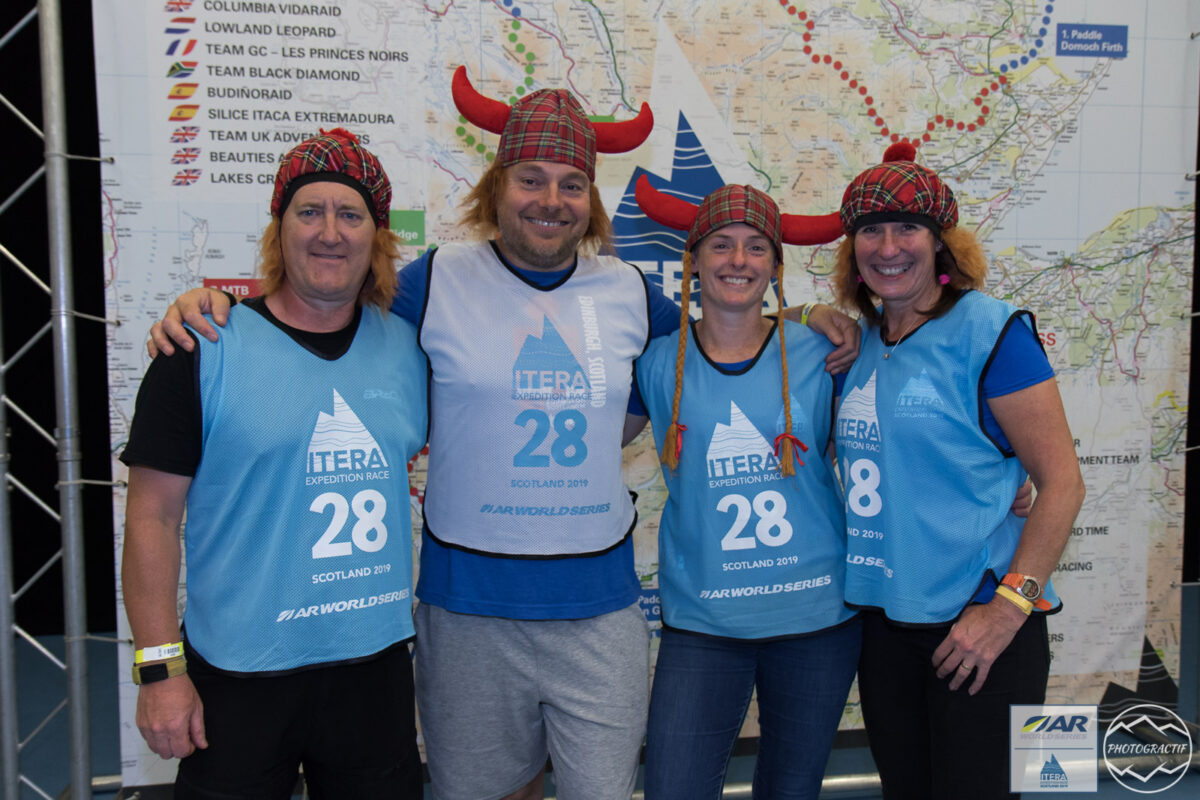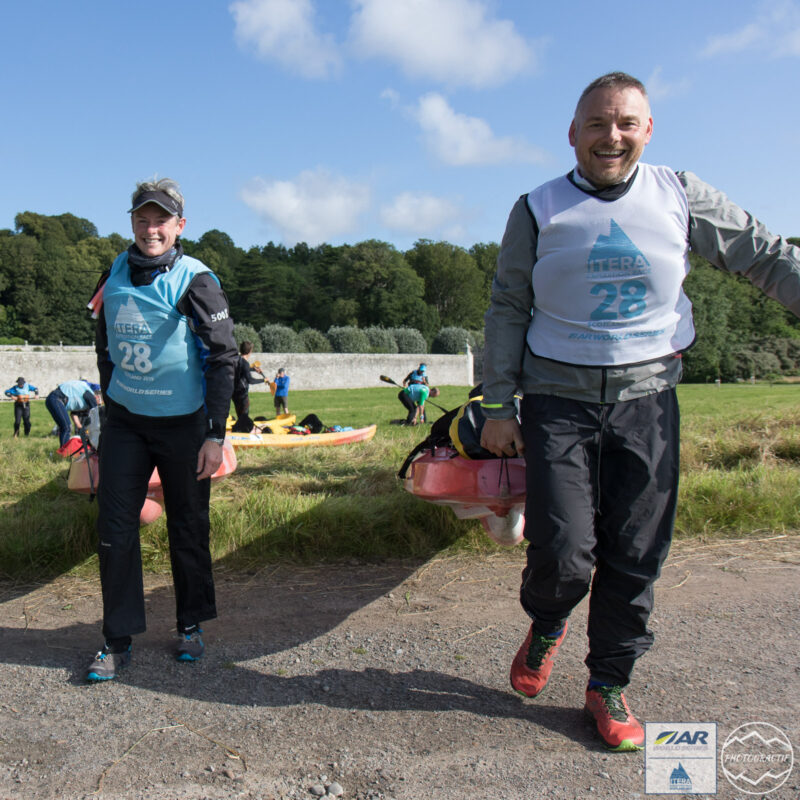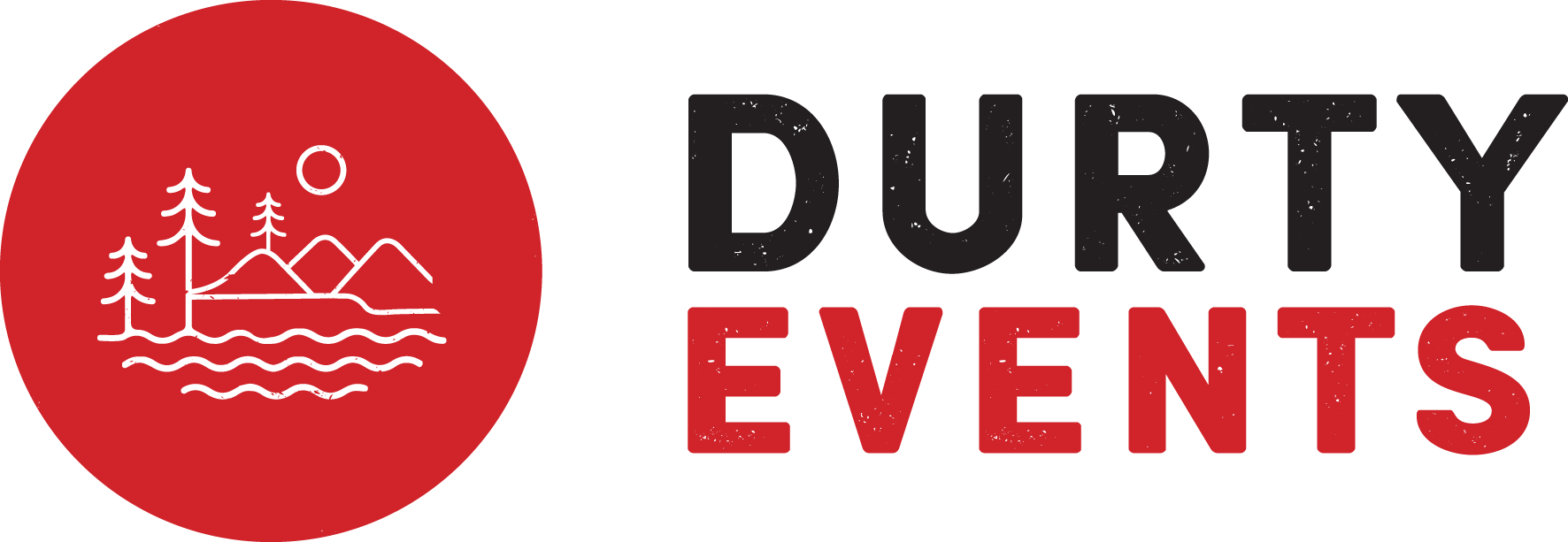


I loved ITERA, absolutely loved it. I was just amazed at what I found out I could do. And the sights you see, I’ll never forget the shooting stars whilst kayaking through the night on the Scottish lochs.”
Dave Harcourt
Age: 52
From being a complete novice with concerns about my weight I began to take on triathlons in 2005, and eventually was doing pretty much every Durty event they put on. Since those early days I have taken part in some wonderful challenges including running 100 miles across a frozen lake in Mongolia and cycling and running across the Namib desert. This year, in March, I am crossing the Americas from the Pacific to the Atlantic via Panama’s jungle. Not only that, I’ve joined Paul’s team doing the Nordic Isles Adventure Race (full adventure race in the Faroe Isles) this August.
I entered ITERA in 2019 before even asking anyone to be in my team, I just knew I wanted to experience it. It didn’t take me long to find 3 other similar individuals – all of whom are veterans & marshals of many and various, Durty events.
We gave ITERA our best shot but we were four novice adventure racers and withdrew after three days of non-stop intense action. We are now hopefully much wiser and will do ITERA again in the future. In the meantime, we have entered ITERA-lite to get as much experience before the next ITERA!
I was originally encouraged into adventure racing by none other than Paul McGreal who knew I would love it. Some of the disciplines such as kayaking, portaging (didn’t even know what that was!), and rope work where completely new to me. And although I’d then made the leap to enter, I didn’t then train nearly enough. I hope I’ll do much better training for my next event, which is now looming…
The overall experience was mind blowing, although I’d completely underestimated it. I had assumed we would be stopping to get rest and have a ‘proper’ meal – not just a bit of it. This is where our lack of experience really showed, as we just ploughed on, until our bodies gave up. Due to us being novices we didn’t have a strong pre-race sleep strategy, just one our many failings. But I do have a plan for my next race! Get a couple of solid hours sleep every night. So much was hard about ITERA but probably the hardest part was making the call to retire. However, hopefully I learned how to do my next adventure race better!
But despite all the ‘challenges’ I loved ITERA, absolutely loved it – Paul was so right. I was just amazed at what I found out I could do. And the sights you see, I’ll never forget the shooting stars whilst kayaking through the night on the Scottish lochs.
If anyone is thinking about ITERA-lite I’d say you need a good level of general fitness and endurance, be decent at navigating and have the required mental capability of going for hours.
If you’re considering it, go for it! You will have an amazing experience even if you don’t complete the course. You will make many new friends and will be utterly gobsmacked by what you can do and how far you can push yourself. If you’re up for it but need to find team mates, it’s easy. Just ask in the forums, talk to the organisers, and friends of friends.

If you don’t have much experience in some the disciplines (I didn’t), just practice as much as you can. Also, each race is different and some will have less of some disciplines such as kayaking than others. Think about navigation – it’s fine if you’re a decent navigator at the start, but the problems occur when you are very tired –it is so easy to then make cumulative mistakes, like we did.
You need to consider things in advance like kit lists, knowing how to use the kit, training plans, nutrition plans, watching videos of adventure races – you can spend many hours trying to guess the course but this would likely be better spent training.
Team dynamics is a crucial one. You need to know that you and your team mates are going to get on whatever happens. You are all so tired that you need to make sure that the little things that normally annoy you don’t, and you need to be able to be honest with your teammates – everyone will go through highs & lows and it needs the team to get you through your lows.
Other than taking a few hours rest each night, be as organised before the race as possible and make sure everyone knows who is doing what at transitions. Take lots and lots of food in every transition box & bag. Train more, especially on your weaknesses.
Ask the pros about fuelling throughout the race, some top tips we got were things like having cartons of custard in your transitions. You will be consuming in excess of 10,000 calories a day so you do need to work out how you are going to get this into you – it’s unlikely to be gels
My last piece of advice is do not forget to enjoy it – although it’s going to be tough the experience is truly mind blowing.

